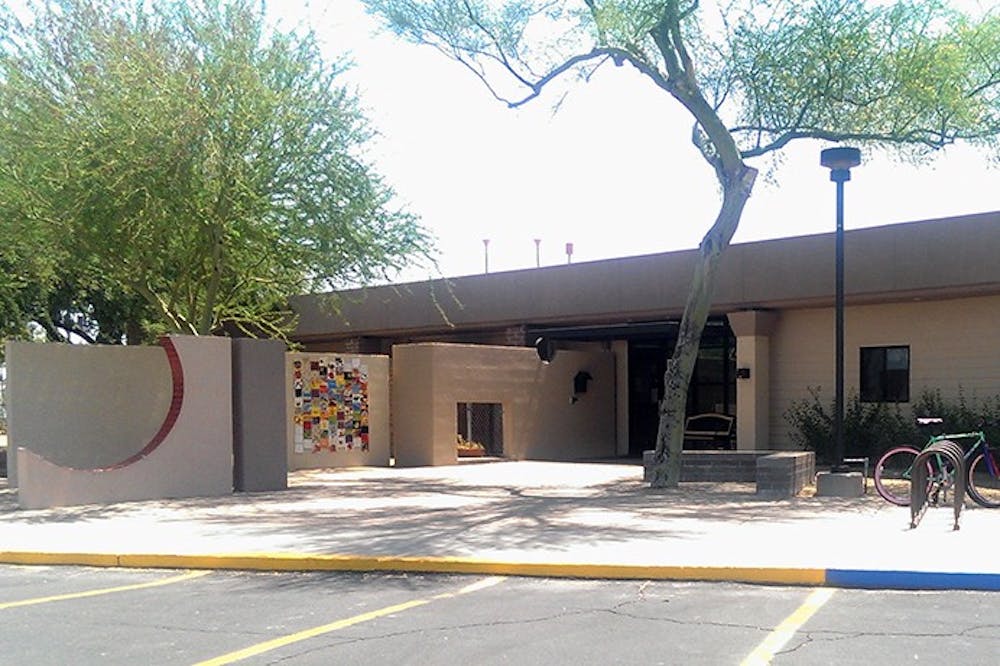Students with children face a significant amount of financial barriers when it comes to paying for college, and that is only compounded by the cost of child care, according to a new study from the Economic Policy Institute.
The study showed an average of in-state tuition rates across the country — including the three major, public universities in Arizona and compared them to the average cost of child care.
The cost of infant child care, in particular, was only 4.7 percent less than the cost of in-state tuition, another EPI study reported.
Dan Crawford, a spokesperson for the Economic Policy Institute, said the situation is emblematic of a greater systemic need in the country.
"We looked at child care costs nationwide ... and compared it to things like rent, which is also very expensive, and in-state tuition," Crawford said. "(And in) 33 states, and then D.C., infant care costs exceed the cost of in-state college tuition."
Comparatively, care for a 4-year-old exceeded the cost of in-state tuition in 24 states and Washington, D.C., he said.
The study was used to measure the cost of public, four-year institutions, not community colleges or other higher learning institutions.
At ASU, tuition averages about $10,000 to $11,000 per year, depending on class standing, area of study, campus location and other factors, according to the University's website.
The average cost of infant child care in Arizona is $9,437 per year, according to an EPI study. Child care for 4-year-old children drops to $7,497 per year.
Tuition is a large expense for any student, but those who need to take on an added cost through child care are doubly affected, Crawford said.
"Even in the states where child care is less than tuition, it's still a large expense," Crawford said. "For many families, child care is the biggest expense that they pay and if it's not the biggest, it's the second biggest."
Although the cost of child care presents an obstacle to men and women alike, the economy can be dually tough on women, Crawford said.
"One thing that happens with child care expenses, is women are more likely to leave the labor force to care for children," he said. "Typically it ends up that if one parent is going to stay home, the woman or the wife stays home to take care of the kids because they can't afford child care."
Karen Schulman, senior policy analyst for the National Women's Law Center, echoed Crawford's sentiments and said that women can often find themselves in a financially precarious spot when trying to pay for child care and school.
Many students with children can be placed in a sort of conundrum by attempting to pay for college and child care while working a low-paying job, Schulman said. State and federal education aid to help students in need pay for child care could provide one solution, she said.
"The way they could solve that dilemma is to provide a little bit of assistance and then they're more likely to be able to work," she said. "But if they can't get the help with child care to begin with, then they can never get there."
Students with children do have some options available to them at the University level.
Maureen Duane, program coordinator senior for ASU Family Resources, said ASU offers child care options to aid specific student needs.
ASU's Tempe campus has a Campus Children's Center near Rural and Terrace roads. Duane also works as a liaison between the Campus Children's Center and the University.
The center offers child care services and charges a monthly rate for child care based on the age of the child.
Students can drop off their children across the street from the University Drive and Rural Road Light Rail Stop as early as 7 a.m. and can pick up their children as late as 6 p.m., according to documents from the Campus Children's Center.
Duane said the University also maintains a database of child care centers in the area that would be good fits for students' children if the Campus Children's Center does not have vacancy.
"The database is an internal document comprised of licensed child care centers in targeted zip codes surrounding the four ASU campuses," Duane wrote in an email. "If a center is licensed by the State of Arizona they are included in the database and are contacted by AFR to provide current information about their program."
There are also child care options on the Polytechnic and Downtown Phoenix campuses, according to Educational Outreach and Student Services.
The University also offered a pilot program in the 2015 academic year to provide aid to students with children. The Sun Devil Child Care Subsidy program allowed students to apply for financial aid to help with the cost of child care and education.
Even when students have aid through their school, that is not always enough, Schulman said. Although students can be scrupulous in how they pay for their child care and college education, the process would be made significantly easier if aided by the government, she said.
She said the government should approach funding like a long-term investment for the future of the state, rather than additional spending.
"So it's an investment that's not being made, and that's a real loss for families, for children and for the state's economy," Schulman said.
Reach the reporter at jwbowlin@asu.edu or follow @mrjoshuabowling on Twitter.
Like The State Press on Facebook and follow @statepress on Twitter.





